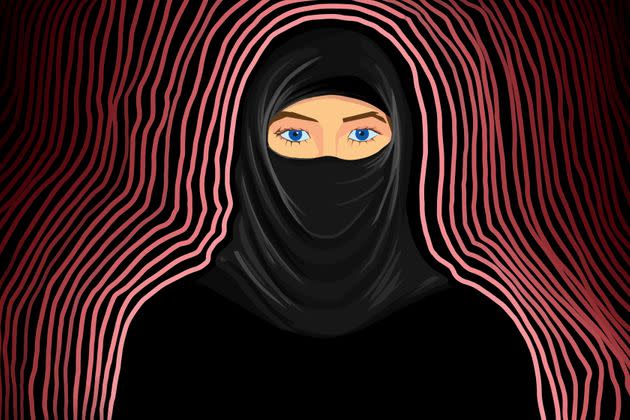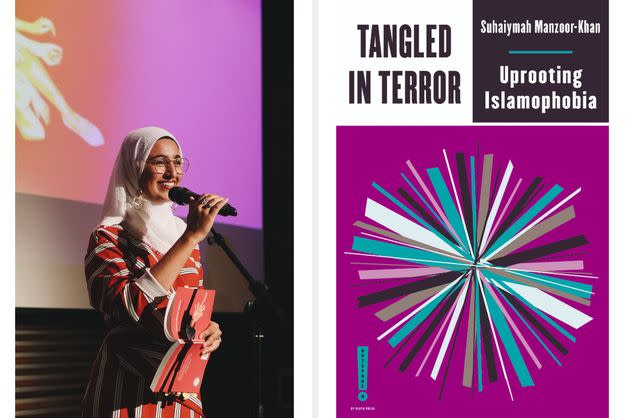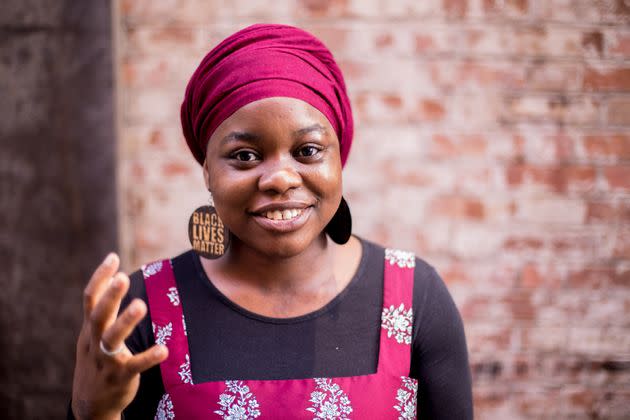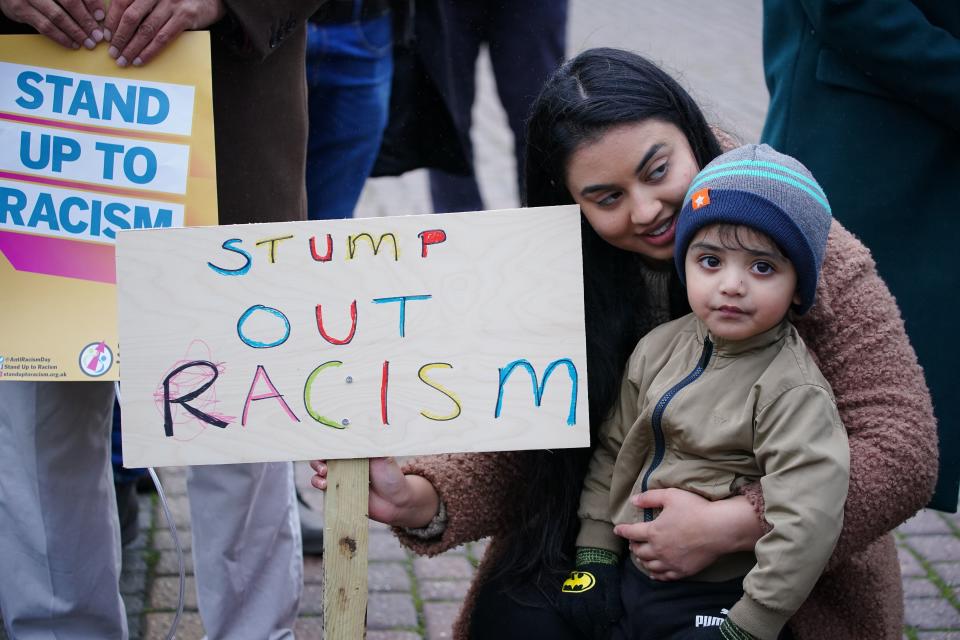Islamophobia Plagues Our Education, Politics, and Media. Why Is Nothing Changing?

Muslims aren’t surprised when a new year brings with it fresh instances of Islamophobia.
In January 2021, a four-year-old in the West Midland was referred to Prevent, the government’s controversial anti-terrorism scheme, over a game of Fortnight (parents said the police turned up to their home at 10:30 at night).
In February, the first female secretary general to the Muslim Council of Britain, Zara Mohammed, was subjected to a hostile interview on the BBC, and forced to negate the “backward”, sexist ways of her religion.
By March, two schools in Birmingham and Slough were being told to train Muslim students to effectively spy on one another, according to Prevent Watch, a community-led initiative that monitors the Prevent scheme.
Later in the year, anti-Muslim hate showed its face again when MP David Amess’s tragic killing in October led to death threats to British Somalis.
Then in November, Azeem Rafiq’s heart-wrenching testimony of the racism he faced in cricket – which included having alcohol forced down his throat as a teenager – also opened people’s eyes to the normalisation of Islamophobia.
And as last year came to a close and a new year gets underway, the Nationality and Borders bill, which is set to give powers to revoke British citizenship (as in the case of Shamima Begum), is making its progress through parliament, leaving dual-nationals and Muslims in precarious situations.
These are not isolated examples. In the past decade, we’ve seen anti-Asian and anti-Muslim sentiments propagated by a range of factors: the Brexit debate; a media that gives 357% more coverage of terrorism where the perpetrators happen to be Muslim; and government prevarication over the definition of Islamophobia.
Muslims have been subject to discrimination for generations and continue to reel from its modern-dayimpact. Despite Islamophobia playing out in politics, education, media and the workplace, very little seems to be shifting – why?
The effect of Islamophobia
In her new book, Tangled in Terror, author, podcaster and poet Suhaiymah Manzoor-Khan, 27, says Islamophobia is not a new concept, predating 9/11 and, in the UK, the events of 7/7, by decades, even centuries.
“Discourse about Muslims being associated with patriarchy and illiberal norms have been part of the British imaginary for not just the last 20 years but since British imperialism and British colonialism,” she tells HuffPost UK.
“The image of Muslims as barbarians, as outsiders is present in the 1800s and even earlier than that, some historians would argue.”
Manzoor-Khan believes any productive conversation about Islamophobia has been hijacked by the pressure to name examples or give definitions of it.
In her book, she explains that she is more interested in its effects – what Islamophobia actually does to Muslims – and particularly how a preoccupation with convincing people of the reality of Islamophobia distracts from the stealth harm happening to Muslims and other racialised people.

“Islamophobia in Britain has become a tool to distract us from the real, serious violence that we face on a systemic scale,” she tells HuffPost UK.
“Covid has made that so obvious – that actually because of the adherence to this idea that the economy matters more than real human lives, we’ve allowed for systemic murder of elderly people, ill people, disabled people, chronically ill people, and the disproportionate deaths of people of colour – due to systemic racism.
“Islamophobia also allows us to be distracted from 10 years of austerity, from all sorts of cuts and all the kind of violence that makes us alienated from one another, puts us into poverty, and in the way of death and harm.”
If you can’t say ‘somebody tried to rip my hijab off’ or ‘somebody spat at me and called me a terrorist’, then it’s almost seen as Islamophobia has barely impacted you."Suhaiymah Manzoor-Khan, author
How does Islamophobia impact her personally? “This is such a tricky question, because we often reduce Islamophobia to simply slurs and microaggressions,” says Manzoor-Khan.
“So if you can’t say ‘somebody tried to rip my hijab off’ or ‘somebody spat at me and called me a terrorist’, then it’s almost seen as Islamophobia has barely impacted you. But the reality is that Islamophobia has affected me at every level of everything. As soon as I stand on the street, in any institution that I go into, I’m visibly Muslim, and I’m associated with all of those caricatures.”
These often divide along gender lines: the image of the barbaric, patriarchal and predatory Muslim man; and the submissive, oppressed woman. And for too many Muslims growing up in the global west, our time is spent trying to prove these preconceptions otherwise, instead of just living our lives free of labels, stereotypes and explanations.
As Manzoor-Khan sees it: “We’ve wasted years where we could have been organising against racism more broadly and the roots of white supremacy, including anti-Blackness, but instead, we’ve tried to make ourselves appear palatable and distance ourselves from violence.”
Islamophobia in politics
The current political backdrop is particularly disastrous for Muslims and other minorities.
In Boris Johnson, we have a prime minister who has likened Muslim women to letterboxes, a comment that was linked to a 375% rise in hate crimes. During the pandemic, the government appointed Trevor Phillips, a man who was suspended from the Labour party for Islamophobia, to lead a review into Covid deaths, something that has disproportionately affected the Muslim community.
But at a time when governmental policies and actions impinge directly on Muslim lives, they also make it hard to voice opposition or activism.
Dr Khadijah Elshayyal, a research fellow at the University of Edinburgh and author of Muslim Identity Politics: Islam, Activism & Equality in Britain, believes a kind of orchestrated Islamophobia excludes Muslims from public life.
“Muslim activism and our existence in the public sphere has progressively been undercut directly through actions and policies of government,” she says.
“Muslim organisations, activists, personalities and individuals are scrutinised in ways that are almost impossible to live up to. And the possibility for engaging with the government and by extension, with other public bodies, is conditional to adherence to British values as defined and stipulated by the government.”
Dr Elshayyal calls it “a losing battle”.
“Government ministers and representatives will name and blacklist Muslim individuals and organisations and in doing so, render them a pariah in the public space and make it impossible for them to have independent voices that may be dissenting from government policy,” she says.
“At the same time, the government will amplify voices which support their agenda. What this does is make it impossible for Muslims to pursue genuinely independent political activism or to engage in public life with integrity.”
Islamophobia in education
While most 18-year-olds can go off to university without worrying how their faith may be weaponised against them, many Muslims are quickly reminded that there are limitations on their student experience.
Ayo Olatunji, 25, a medical student from London, believes Islamophobia is alive and flourishing on campus. Serving as a vice-president of student affairs in 2020, Olatunji heard about many cases of Islamophobia in UK universities.
“I’ve seen Muslim organisers being told they can’t chair their own events, being forced to have a ‘neutral chair’, and being refrained from speaking on certain issues such as Palestine,” he says.

“Muslim speakers had their freedom curbed and were under undue scrutiny, and faced a lot of bureaucracy when they wanted to hold events, talks, and dinners. Bureaucracy is often used to make things like planning an event, booking a room or inviting a Muslim speaker much more difficult and arduous.
“It’s in the little inner workings of the system, and the bureaucracy that is used to make the lives of Muslim students harder, [which] makes it more difficult for Muslim students to thrive at campus, to express their religious and political views in the ways that other university students are very easily able to.”
Olatunji recalls how in 2019, King’s College London barred ‘troublemaker’ students from campus during a visit by the Queen – eight of the 10 who were barred were Muslim students.
A damning independent report published a month later found that the university had “overstepped their authority” when it created its disgruntled list and later disabled electronic cards belonging to 13 students who were barred from entering exam halls, libraries and even residential halls for five hours.
Olatunji has first-hand experience of student activism himself and says the “personal and mental damage” of these curbs is very real. “Such actions serve to traumatise and repel Muslims from engaging in activism,” he says.
He believes that universities need to work much harder to foster a safer, happier environment for Muslims. “It’s policy, individual enactment and action, from academics, from staff, from management, all the way from the top to the bottom, that need to work the solution.”
Azeezat Johnson, 33, a research fellow at Queen Mary University, says that Islamophobia also occurs at the level of academic staff, and can happen to even the most esteemed figures. But, she says, it can also be challenged.

“As we see the government honing their skills in building a culture of fear, I think the question of challenging Islamophobia becomes all the more important,” she tells HuffPost UK. “Part of what needs to be addressed is how Islamophobia is maintained by the constant absence of minoritised people (including minoritised Muslims) from institutions of power. Or rather our absence from places of power within these institutions.”
It’s not just a case of improving optics. “That doesn’t mean hiring just the one Muslim who can blend into the already existing academic structures,” she says.
“It means putting resources behind the work of people who’ve been having more nuanced conversations about Islamophobia in their kitchens, than I’ve heard in some seminar rooms.
“It requires creating space to actually listen to and honour the different perspectives that inform scholarship/knowledge. That’s how I want to see Islamophobia being challenged.”
Islamophobia in the media
Our media all too often scapegoats Muslims, too, whether on news channels or in blockbuster films. A recent and extensive report by the Centre for Media Monitoring, which analysed the British media’s coverage of Muslims and Islam between 2018 and 2020, revealed some dire findings.
Researchers found that one in 10 online articles misrepresent Muslims, and 82% of misrepresentation (including biases, sticking to stereotypes) came from news reporting – almost 60% of articles across all publications were identified as associating negative aspects and behaviour with Muslims or Islam.

The report’s author Faisal Hanif, a media monitoring analyst, has spent the past three years pouring over print, digital and broadcast journalism for the report.
“We found that one in five articles is centred around the theme of terrorism/extremism where an identifier of Muslims and/or Islam is mentioned. So, everyone from international terror groups to ordinary Muslim citizens are lumped together.”
So, how does the media achieve this? “Language is one of the key drivers,” explains Hanif. “Despite regulations and editorial guidelines saying quite clearly that a person’s religious affiliation should only be mentioned when genuinely relevant to the story, when it comes to Muslim the relevance is very elastic and found in everything from terrorism, crime, racism, anti-Semitism and any negative aspect or behaviour you can think of.
“These things are then regurgitated in areas of fictional representation of Muslims particularly in dramas on screen where Muslims are then represented as intolerant and out of sync with the rest of society.”
When Islamophobia operates at every level and in all areas of society, Muslims grow up feeling misunderstood, unimportant, and terrified. They don’t just see hostility towards their faith on TV, but in their schools, universities, work places, and in government. And the result is exhausting.
In 2022, Islamophobia will persist, but Muslims such as Manzoor-Khan, Olatunji and many others are not buying into the distraction of convincing people of their humanity. Instead, they’ll be fighting against all forms of bigotry and building a more radically compassionate, equal, and freer world.
This article originally appeared on HuffPost UK and has been updated.

 Yahoo Movies
Yahoo Movies 




